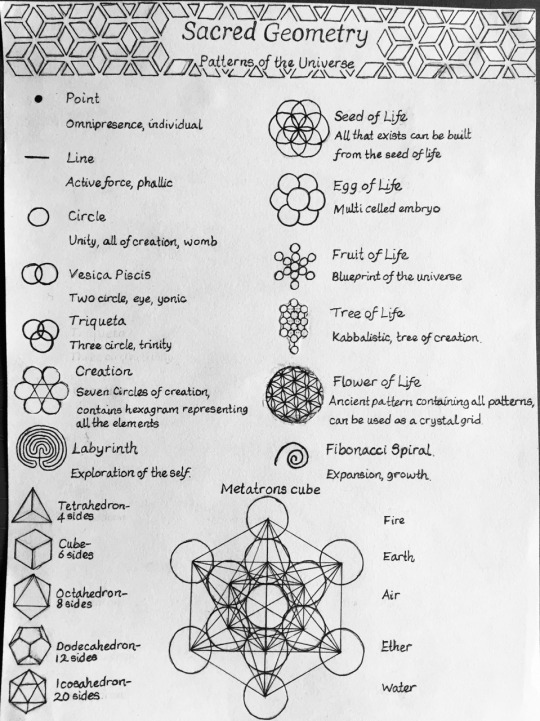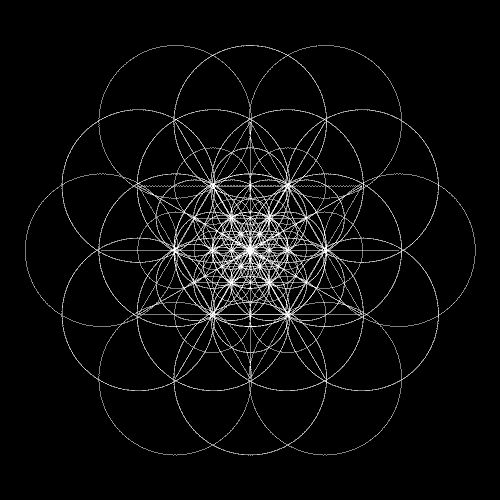Don't wanna be here? Send us removal request.
Text

C.S. Peirce, The Basis of Pragmaticism in Phaneroscopy
27 notes
·
View notes
Photo

Alchemical symbol of Transmutation. Used and recognized by those who study mental alchemy, divine alchemy and Newton’s Alchemy.
Mental Alchemy - Transmute the bad into positive, into the aligned universal good, the chi, prana, orgone, ka, earth-aether.
~°»follow your resonance, archaeoangel«°~
813 notes
·
View notes
Quote
When a man observes himself, he observes a lot of things that have their own importance, but usually he does not observe his attitudes. To speak with exaggeration, I may believe myself God—as so many lunatics do, which shows you how close this idea is to people. Since I believe myself God, I will never think of observing this in myself. Why? Because I take this attitude for granted. To believe oneself God is an attitude. So of course I will never think of observing that. Well, it is just the same with all attitudes. One simply accepts them—or, rather, one simply does not know that one has them, so one does not think of observing them. In fact, one simply cannot observe them and cannot hear anyone who is such a fool as to try to call attention to them. You cannot observe anything you take yourself as. A man, says the Work, before he can shift from where he is internally, must divide himself into two—an observing side and an observed side. That is, he must make his subjectivity objective. He must take himself as the object to observe. But if he remains entirely unconscious of his attitudes, how can he observe them? The most of what self-observation we can do is made useless by subsequent self-justifying. “A man”, said Mr. Ouspensky, “who always justifies what he observes in himself cannot become objective to himself.” That is understandable, if you reflect. But how can one observe something that is, so to speak, unobservable? One’s attitudes are oneself. One takes them as oneself. No—one does not know anything about them. One does not say: “These attitudes I have acquired are me.” On the contrary, one does not say anything. They are what you take for granted as you. If one could say: “These attitudes are me"—then it would mean that one has begun to become a little aware of them. That is, these attitudes would begin to be objective to you—to things in yourself that Observing ‘I’ can observe. But if you remain in inner darkness, how can you proceed? Well, I will end this short commentary by saying that although it is impossible to observe ingrained and fixed attitudes directly, one can begin after some time to notice the results of them. For example, you may begin to wonder why you always grunt like that when someone asks you to do something useless. You may say to yourself after a time- “I wonder why I always think that thing useless.” The answer is: “Probably because of some fixed attitude that you are entirely unaware of.” In this way one is led down to the fact of the existence of these attitudes in oneself. If such a merciful thing has happened to you— that is, if the Work has given you internal help—you will realize that behind this attitude, that you begin at last to become conscious of, dwells secretly this intractable factor common to us all. Remember that you cannot work on yourself unless you begin to wonder why you say what you say and do what you do and behave as you behave and feel what you feel and think what you think. To take yourself for granted, to imagine you are always right, to ascribe to yourself all that you do ascribe to yourself—all that form of sheer imagination will prevent you from seeing what esotericism means, what the Gospels mean, and what you mean.
Maurice Nicoll (Psychological Commentaries on the Teaching of Gurdjieff and Ouspensky 3)
15 notes
·
View notes
Quote
At the center of the Universe dwells the Great Spirit and that center is really everywhere, it is within each of us.
Black Elk (via purplebuddhaproject)
5K notes
·
View notes
Photo

Leonardo da vinci flower of life, codex atlanticus
1K notes
·
View notes
Text
13 notes
·
View notes
Photo

NBA Players Wear Special Lace Collars To Honor Ruth Bader Ginsburg
213 notes
·
View notes
Photo

“As Above, So Below” by Brock Springstead
10K notes
·
View notes
Photo



Created using still images taken by the Cassini spacecraft during it’s flyby of Jupiter and while at Saturn. Shown is Io and Europa over Jupiter’s Great Red Spot.
NASA/JPL-Caltech/SSI/CICLOPS/Kevin M. Gill
42K notes
·
View notes
Text
Observe all your forms of internal considering and try to observe your fantasies about yourself and don’t believe them.
Observe what you are caught by, what you are always held down by, and what turns you sour, and work against these things by inner separation.
All these, and many other things, as the Work teaches, have to do with changing your psychology.
For example, observe whether you are negative at this moment. Are you going with it? Are you going to identify with this negative emotion at this moment? Or are you going to separate from it and not go with it? This is work on oneself.
Do you all understand that you have fixed and habitual attitudes such as that you expect a meal at a certain fixed hour and so on? Can you change your attitude to such fixed things in yourself? Can you change the way when you read the newspapers you feel instantly negative —i.e. mechanically negative towards one person or another? This is mechanical reaction due to your acquired psychology so try to notice how you psychologically react to everything that you are confronted with and try to change it, in the light of what the Work teaches.
Above all, notice when you get negative. Notice this especially before it has gone too far and do everything you can to separate from this negative reaction. This is real work on yourself and it will give you very much if you do it. But as long as you take yourself for granted nothing can happen to you at all.
– Maurice Nicoll, Psychological Commentaries on the Teaching of Gurdjieff and Ouspensky, vol. III
29 notes
·
View notes






